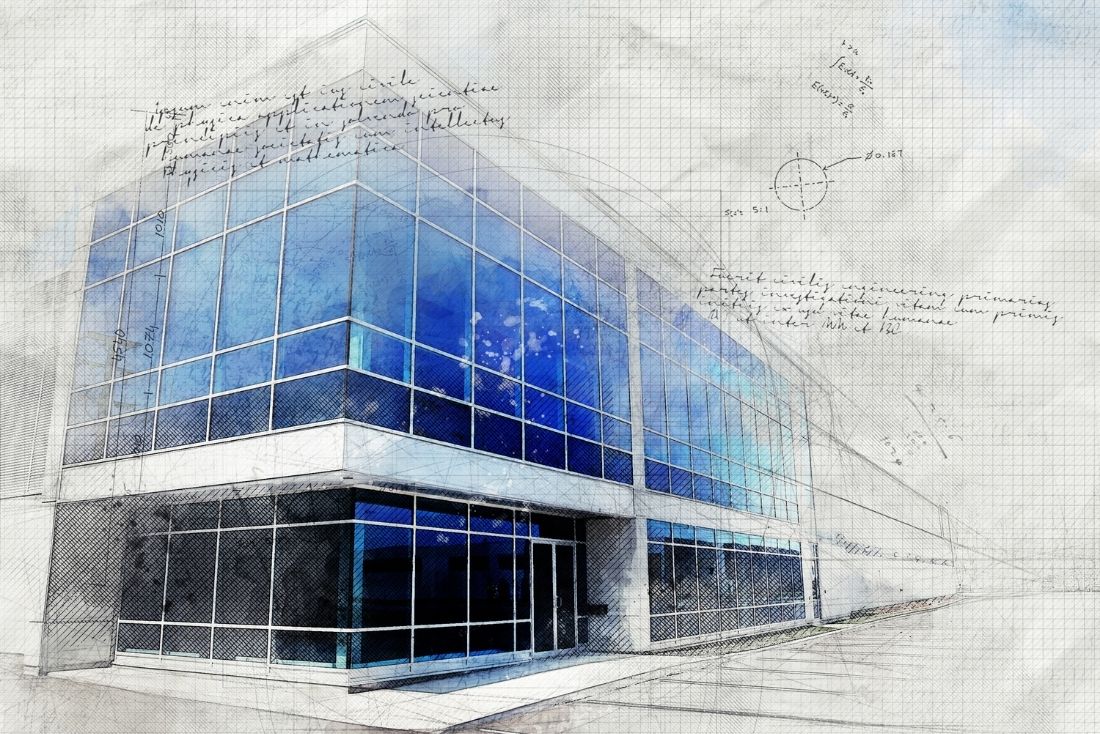SINCE 1988
203-546-7793

Purchasing an industrial building in Newtown, CT, is a significant investment, whether you’re expanding your current operations or starting a new business venture. As of 2023, there are 2,483,942 commercial real estate businesses in the United States. With so much at stake, it’s crucial to conduct thorough due diligence to avoid potential pitfalls. Ignoring red flags can lead to costly repairs, compliance issues, or operational inefficiencies. Here, we’ll guide potential buyers on the top red flags to watch out for when buying industrial buildings for sale, ensuring a smooth and successful purchase process.
Before evaluating industrial buildings for sale, it’s essential to understand the current industrial real estate market. Factors such as location, economic conditions, and industry trends significantly influence property values. Conducting market research can provide valuable insights into pricing, demand, and the overall health of the market.
The industrial real estate market remains robust, driven by the continued growth of e-commerce, manufacturing, and logistics sectors. It is projected to experience an annual growth rate (CAGR) of 2.96% from 2024 to 2028. However, market conditions can vary significantly by region, so it’s vital to stay informed about local trends and forecasts. This knowledge will help you make more informed decisions when evaluating industrial buildings for sale and negotiating purchase terms.
Before starting your search for industrial buildings for sale, take the following preparatory steps:
When evaluating industrial buildings for sale, it’s essential to be vigilant and identify potential red flags that could indicate underlying issues or future challenges. Here are ten critical red flags to watch out for when making your investment.
One of the most critical aspects to evaluate when considering industrial buildings for sale is structural integrity. Structural problems can be costly to repair and may pose safety risks. Hiring a professional structural engineer to inspect the property can help identify any significant issues.
The condition of the roof is another crucial factor to consider. Industrial buildings for sale often have large roof surfaces, making them susceptible to damage and wear over time. Inspect the roof for visible signs of damage and request maintenance records to understand its history. A well-maintained roof is essential for protecting the building’s interior and ensuring the longevity of the structure.
Environmental issues can be a significant red flag when evaluating industrial buildings for sale. Conducting an environmental assessment, including Phase I and Phase II Environmental Site Assessments (ESAs), can help identify any potential concerns. Addressing these issues before purchasing can prevent costly remediation efforts and ensure compliance with environmental regulations.
Zoning and compliance issues can impact your ability to operate your business effectively, so it’s essential to address them upfront. Non-compliance can lead to fines, legal issues, and operational disruptions. Consulting with a zoning expert or attorney can help navigate these complexities and ensure that the property meets all requirements.
Adequate utility infrastructure is essential for the smooth operation of industrial buildings for sale. Outdated or insufficient utility infrastructure can lead to operational inefficiencies and increased costs. Upgrading utilities can be expensive, so it’s essential to factor these costs into your budget.

The location of industrial buildings for sale plays a significant role in their suitability for your business. Poor accessibility can lead to logistical challenges and increased transportation costs, impacting your overall operational efficiency. Good accessibility and logistics can enhance your business operations and reduce transportation-related expenses.
Understanding the maintenance history of industrial buildings for sale can provide insights into potential future issues. A building with a history of frequent repairs or poorly executed maintenance may require significant investments to address underlying issues. Ensure that all necessary repairs have been completed and that the building is in good condition before finalizing the purchase.
When evaluating industrial buildings for sale, consider the potential for future growth and expansion. Assess whether the property has physical limitations or restrictions that could hinder your business’s expansion plans. Planning for future growth can ensure that your business can expand without significant disruptions or additional costs.
Understanding the current market conditions and evaluating the property’s value are crucial steps in the buying process. Research comparable industrial buildings for sale in the area. A thorough market analysis can help you make an informed decision and ensure you are paying a fair price for the property.
Ensuring a clear title with no liens or encumbrances is essential when purchasing industrial buildings for sale. Engaging a real estate attorney can help navigate these complexities and ensure that the property is free of any legal disputes. Addressing legal and title issues before finalizing the purchase can prevent future complications and protect your investment.

After purchasing industrial buildings for sale, there are several important steps to take to ensure a smooth transition and optimal use of your new property. Here’s a detailed guide on what to do after acquiring industrial buildings for sale:
An industrial building is a good investment if it is in a prime location, has solid structural integrity, offers potential for future expansion, complies with zoning and environmental regulations, and meets the specific needs of your business. Conduct thorough market research, financial analysis, and property inspections to evaluate its investment potential.
Distribution warehouses and logistics centers are often the most profitable types of industrial buildings due to the high demand driven by e-commerce and global trade. Manufacturing facilities and flex spaces, which can accommodate a variety of business operations, are also highly profitable.
Disadvantages include high upfront costs, ongoing maintenance expenses, potential vacancies, market volatility, and complex regulatory requirements. Additionally, commercial real estate investments typically require more active management and can be affected by economic downturns.
Properties that generate the most money typically include high-demand commercial spaces such as office buildings in prime locations, multi-family apartment complexes, and industrial properties like warehouses and logistics centers. These properties tend to have high occupancy rates and consistent rental income.
Industrial properties, particularly warehouses and distribution centers, often have the highest ROI due to strong demand from the e-commerce and logistics sectors. Multi-family residential properties also offer high ROI, benefiting from stable rental income and potential for property appreciation.
If you’re a resident of Newtown, CT, and you’re ready to explore industrial buildings for sale, Tower Realty Corp is here to help. Our team of experts will guide you through every step of the buying process, ensuring you make a smart investment. Don’t wait—contact Tower Realty Corp today and let us find the perfect industrial building for you in Newtown, CT. Secure your business future with the best properties in Newtown, CT!
Visit us today!